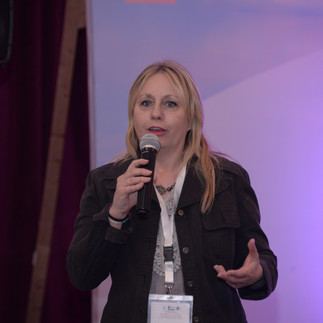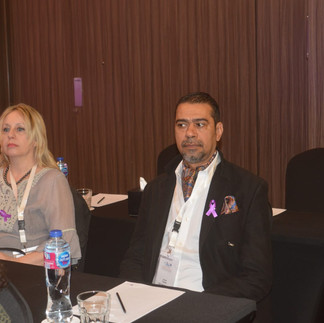DANCE TO LIVE SCHOOL CAIRO
- Simonetta Ottone

- Apr 15, 2023
- 3 min read
EGYPTION DAYS MARCH 2023
In recent months, the Egyptian pound has suffered an incredible devaluation: the dollar, as always, is king.
People in both Italy and Egypt are experiencing a very bad contingency for their economy, but there is a difference.
In Italy, for years now we have been postponing, waiting, educating ourselves on unfortunate degrowth, in every sense, and above all in the sense of vitality, ability to react and cohesion. In Egypt, on the other hand, perhaps accustomed by centuries of adversity, they expect nothing, they live their life as a destiny, a passage to go elsewhere. Thus they live the present as a bridge to the past and as a springboard for the future, and they also manage to smile, as if to say "life is now!".
It is thanks to this attitude that it was possible to continue with DTL Egypt, our dance and dance therapy training program, as we had decided, i.e. in presence for most of the hours.
People understand the honesty that underlies our proposal (Dance Therapy is not feasible online, if not minimally!) and they are grateful to be able to follow our paths live; some female students are beginning to arrive even from outside Cairo.

After the exams taken by some students, the workshops begin with people returning or coming for the first time. Among these came a completely blind woman who followed the Dance Therapy session with joy and interest; it was a new situation here, an extraordinary experience, there is a lot to do in the country for the integration of people with disabilities.

The meeting of Meditative Dances, so intimate and delicate, saw the participation of a man: thus a beautiful atmosphere of sharing was created, despite and perhaps even more due to the differences, of nationality, language, religion, culture, gender, that unite us.

In fact, during these days, the topic of gender conflict prevention has been central.
On the occasion of International Women's Day, thanks to Dalia El Abd, we were invited to a conference entitled "International Women's Day - Contemporary health challenges", promoted by the World Health Organization, Royal College of Obstreticians and Gynecologists. On that occasion we spoke and talked about our years of work in Europe for Women's Health starting from the relationship with one's body. There were then numerous reflections regarding our idea of "Free Choice", regarding one's own conscious motherhood and one's birth.
In our program we work every day on the feminine and the masculine, on the tragically global phenomenon of male violence against women.
Talking about all this in Egypt is different, people are afraid, so we decide together how to go forward. I taught them the Debbie Allen choreography that we dance every year on February 14th around the world; the girls are happy, excited, but the work is only with them, behind closed doors. However, the dance acts and creates directions and networks between women, which will remain.

Often in the evening after work we go to see the dance, wherever it is. Thus we see THE DANCE WITH STICKS (Hattabin), with such a masculine root, a skilfully managed and sublimated aggression.

We then go to El Nhada Arts School "NAS", a Theater School founded by one of our students (Reham Ramzy together with Mostafà Wafi), in a beautiful structure run by the Jesuits, which is located in a historically intercultural neighborhood (El Faggala), where in the past the Jewish community, the Italian one, Christians and Muslims lived together creating a lively and varied area. In their theater we saw a beautiful Sufi show.
We were then invited to hold a session at a school that follows the pedagogy of our illustrious compatriot Montessori; it was a wonderful meeting with the children and their special needs, the teachers, the parents, the headmistress, on the last day of school just before the start of the Ramadan holiday period.
The days go by, full of appointments and work; we meet on the last day in the Open Session entitled "Our Dance is Love", where the girls dance with strength and sweetness. Fatma Ibrahim, author of the book "Stop the silence. Thriving after child sexual abuse", is with us on the occasion, which talks about the consequences of childhood sexual abuse on women's lives and where Dalia El Abd presents a beautiful choreography.
Our dance is love, perhaps it is so, because as soon as they start to know it people open up and create, they experience something exceptional for them.
For us it is certainly this: for the effort, the difficulties that we meet every time and from which we learn, for the respect we feel for these women who, even if squeezed into very strict social, economic and religious conditioning, dance, dream and, in any case, have the strength to “break the chains”.


















































Comments